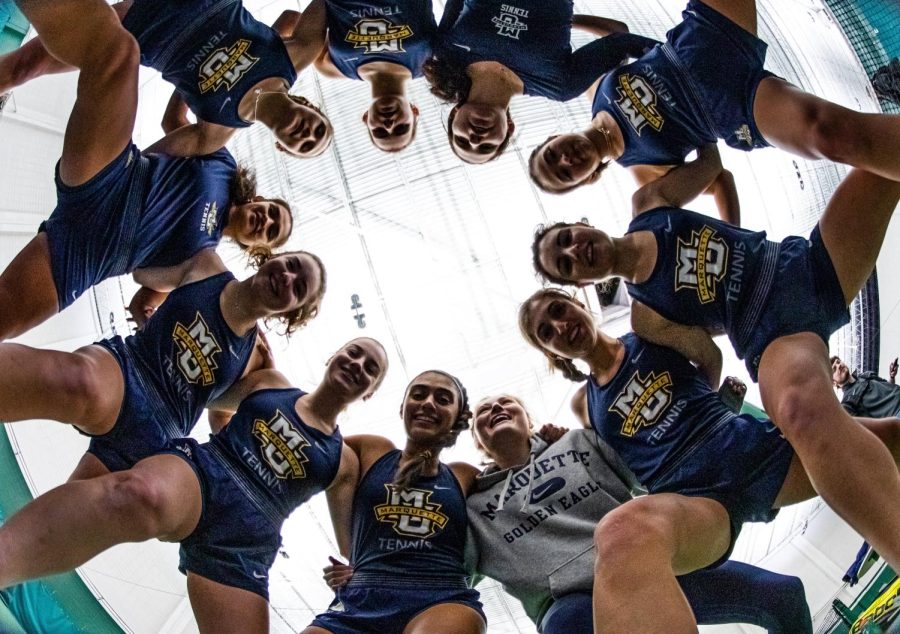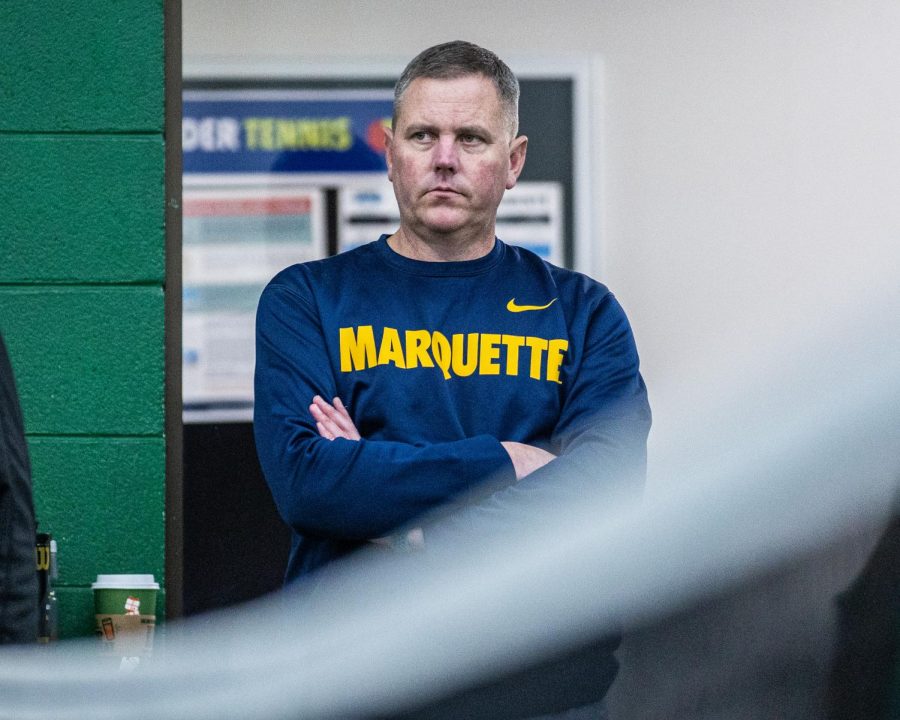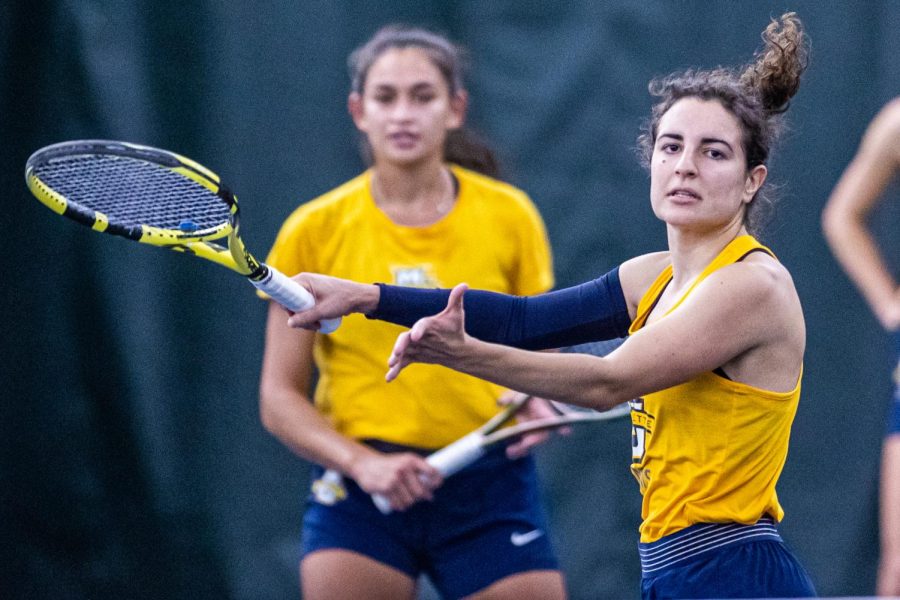 The short, slim man crouches on all fours like a tiger about to catch its prey. He stares intently at the other side, his mind cleared and focused on the task at hand.
The short, slim man crouches on all fours like a tiger about to catch its prey. He stares intently at the other side, his mind cleared and focused on the task at hand.
Yet in the back of his mind, there is something telling him to move, to scramble, to get out of the way. Behind him stands a 6-foot figure, looking particularly menacing with his shaved head. He is about to attack.
This is no Animal Planet reenactment. It is one of the dozens of times senior Dusan Medan will have a 100 m.p.h. serve from freshman Jacob Strauss pass dangerously above his head.
And you thought tennis wasn’t a contact sport? Welcome to the world of doubles.
Tennis is mostly thought of as an individual sport where you must rely on only yourself. This is not the case for doubles. Doubles matches pack four players on a court fit for two at most and then tell them to go at it.
Rallies in doubles matches are quick and chaotic with balls being crushed back and forth from very short distances. This makes doubles more of a speed and reaction game as opposed to the groundstroke affair that is singles.
“Points are a lot quicker,” coach Steve Rodecap said. “You need to move really well.”
The frenetic pace of play makes serving essential to success. A bad serve will give the opponent a juicy meatball to demolish, not only making it near impossible to win a point, but also making your partner at the net vulnerable to being smashed in the face.
“The key to really good doubles is high first serve percentages and making really good returns,” Rodecap said.
The duo of Medan and Strauss proved how successful good serving and returning can be, beating a tandem from Illinois-Chicago 8-5 en route to a 6-1 dual meet victory that pushed Marquette’s record to 4-0.
“It’s easy to play with him,” Medan said. “He has a big serve and after my serve I expect him to put his hands on almost every ball. He’s a strong guy with a big serve and volley so it helps a lot.”
Doubles scoring is also different than that of singles, making good serving a priority and holding serve a necessity.
“It’s completely different. First of all you only play eight games, which is called a pro-set,” Medan said. “So you really need to be focused on each point because if you get broken early it’s really hard to make it up.”
There is only one set to eight, which means a bad set is a lost match.
“It takes really good energy when you’re playing for a pro set,” Rodecap said. “You have to try and outmatch your opponents’ energy.”
Having a partner comes in handy. Teammates huddle up after every point, win or lose, to talk strategy or just do a little pumping up.
The team huddles helped turn the match Sunday against Illinois-Chicago as Medan helped get his freshman partner, Strauss, past some early struggles.
“He’s always there whenever I’m negative or I don’t have enough energy,” Strauss said. “He always says the right things. He’s experienced, he’s composed. So it’s good to be with someone as experienced as him.”





